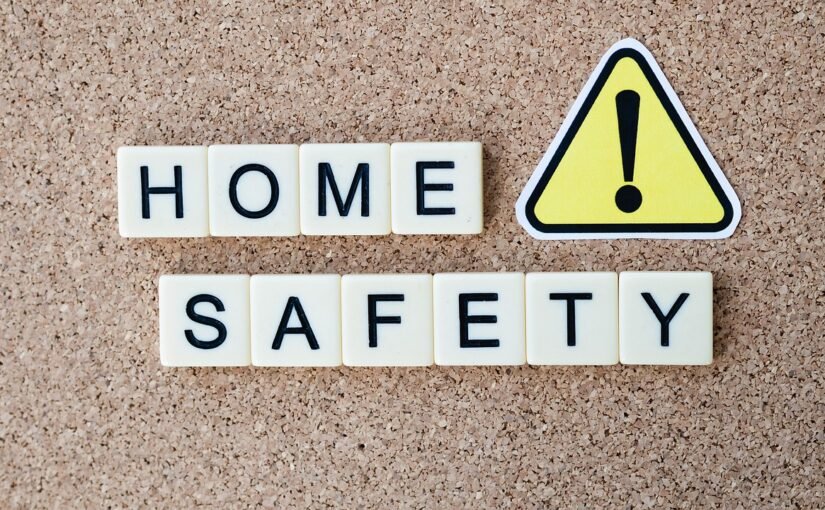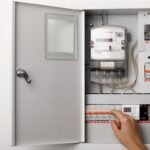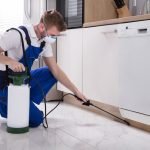The safety of our home—and everyone in it—should always be of paramount concern.
No homeowner should ever be remiss in ensuring home safety in all aspects. After all, homes are always exposed to an assortment of perils, and no one knows when or how they’ll strike. Fires, burglaries, and accidents at home happen all the time, and it’s always best to take steps to prevent them from happening in the first place.
Unfortunately, many homeowners forget or neglect to ensure home safety. Some even ignore what they think are minor issues, like not having garage door repair done right away on one that’s having problems.
Home safety should always be a priority for all responsible homeowners. Here’s a checklist that will help keep your home and your loved ones safe.
Safety For Children
For parents, nothing supersedes the safety of their kids. If you’re one, some of the things you can do to keep them safe include:
- Keeping bleach, dishwasher soap, makeup, button batteries, and other unsafe products out of reach
- Storing medicines and vitamins in bottles with childproof caps, and making sure they can’t get to them
- Installing safety gates at the top and bottom of the stairs for those with toddlers
- Keeping matches and lighters out of reach
- Making sure they can’t see or reach sharp or pointed objects such as knives, scissors, and garden tools
- Putting up window guards
- Strictly observing proper gun storage, like keeping firearms unloaded and locked inside a safe, vault, or cabinet, away from ammunition
- Padding corners of furniture with sharp edges
- Installing a four-sided fence around the pool
Fire Safety Precautions
According to the U.S. Fire Administration, fire kills more than 3,500 people and injures 15,000 more each year.
To avoid becoming a fire statistic, here are some fire safety precautions you can implement:
- All bedrooms and each floor must have smoke alarms, which you need to test regularly.
- Place a fire extinguisher on each floor, and everyone must know how and when to use them.
- Never leave candles, stoves, and other sources of open flames unattended.
- Never wear loose clothing when cooking to keep their risk of catching fire to a minimum.
- Create a fire escape plan and have everyone in the entire household master it.
Carbon Monoxide Safety
Carbon monoxide poisoning is a real threat in any home that burns gasoline, wood, propane, charcoal, or other fuels for heating, cooking, or any other reason.
While you may not be able to do away with appliances that use fossil fuels, you can make them safer by keeping them adequately vented. You will also need technicians to service your furnace and other similar appliances regularly.
Carbon monoxide detectors inside your home will also help reduce the risk. Put one in the hallway close to each sleeping area in your home and replace the batteries at least twice a year.
Electrical Safety Tips
- Check appliances for frayed power cords.
- If you use extension cords regularly, make sure the wire has no frayed parts. Avoid running them under carpets and rugs, too.
- Check all electrical outlets at least once a month to see if they’re warm to the touch. If they are, have an electrician pay you a visit.
- Don’t plug more than one high wattage appliance into the same outlet to avoid overloading it.
- Plug plastic safety covers into unused electrical outlets to keep your children safe.
Secure Your Home
To keep burglars and home invaders out, you need to:
- Install deadbolt locks on all your doors.
- Don’t make a habit of leaving keys to the house under welcome mats or other supposedly “secret” places outside your home. Always keep the keys with you when you’re out. If going on vacation, leave your keys to a neighbor you trust so they can help take care of emergencies while you’re away.
- Install motion-sensing flood lights around your property.
- Make sure your garage door closes fully.
- Switch to a keychain garage door remote so you won’t leave it lying around.
- Invest in a home security system.
These are just the tip of the iceberg when it comes to keeping your home and your loved ones safe, but they should be good enough to get you started. Over time, you’ll discover what else needs doing, and, being the responsible homeowner that you are, you’ll get to it as soon as you can.





